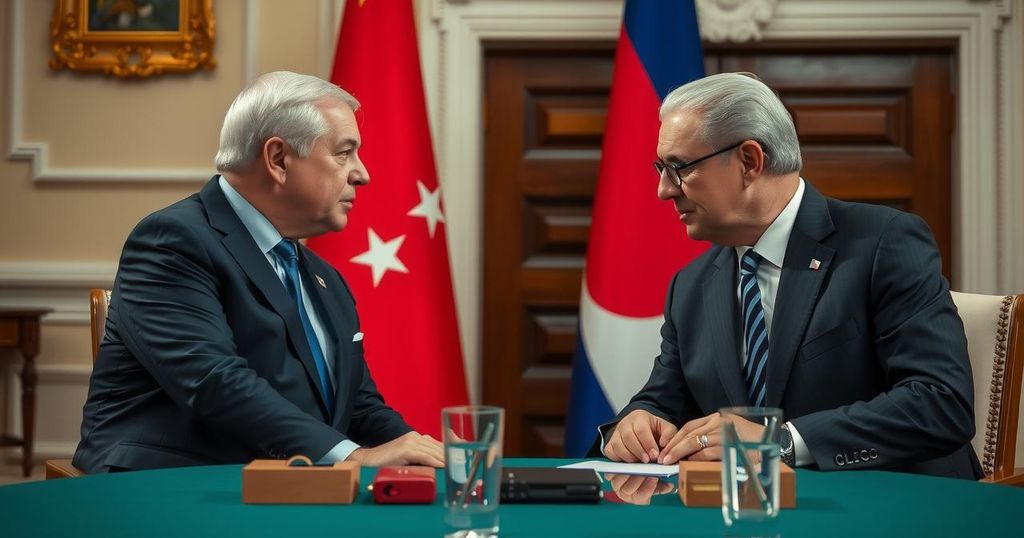On December 16, 2024, Jordan’s Fayez and Iraq’s Mashhadani met to discuss the Iraq-Jordan oil pipeline project, emphasizing economic cooperation and solidarity amidst regional challenges. They condemned Israel’s actions against Palestinians and stressed the need for Arab unity to address security and stability issues, also discussing enhanced parliamentary coordination to better tackle mutual interests.
On December 16, 2024, Jordan’s Senate President Faisal Fayez and Iraqi Parliament Speaker Mahmoud Mashhadani convened to discuss the vital Iraq-Jordan oil pipeline project. Fayez emphasized the project’s strategic significance in enhancing economic collaboration and fostering stronger bilateral relations, asserting, “Our relations are built on mutual respect and shared interests.” He further underlined Jordan’s dedication to supporting Iraq’s unity and security, advocating for deeper economic ties through unified investments and revitalized trade relations.
Fayez cautioned against external efforts to fragment the Arab world, likening current challenges to a “new Sykes-Picot phase,” and reaffirmed Jordan’s firm position against Israeli aggression, particularly in relation to the Palestinian cause. Alongside regional stability, Fayez condemned Israeli incursions into Syria, calling for the immediate withdrawal of Israeli forces from occupied territories.
In response, Mashhadani echoed calls for Arab unity, stressing the necessity of strengthening political and economic connections among Arab nations to effectively combat external threats. He commended Jordan’s historical support for Iraq, indicating his visit symbolized deep-seated ties between the countries.
In a concurrent meeting, Lower House Speaker Ahmad Safadi also met with Mashhadani, focusing on enhancing joint parliamentary cooperation and addressing regional issues to the benefit of both nations. The speakers reaffirmed their commitment to solidifying Jordan-Iraq relations based on discussions held earlier involving His Majesty King Abdullah and Iraqi Prime Minister Mohammed Sudani.
Both leaders reiterated the importance of cooperating against regional instabilities, particularly concerning the ongoing conflicts in Gaza and the West Bank. They highlighted the potential for investment in sectors including energy, transportation, and agriculture, while stressing the role of legislative bodies in facilitating economic integration and collaboration alongside Egypt.
Mashhadani acknowledged Jordan’s steadfast support during critical periods in Iraq’s history and called for increased Arab unity to confront shared challenges spanning Palestine, Syria, and Lebanon.
The meeting between Jordanian and Iraqi leaders comes at a time when regional cooperation is increasingly seen as vital for addressing various geopolitical challenges in the Middle East. The Iraq-Jordan oil pipeline project represents a significant economic initiative designed to enhance interdependence between the two countries, thereby increasing both economic growth and political stability. The discussions reflect ongoing efforts to consolidate Arab solidarity against external interventions and foster a cooperative environment among neighboring nations.
In conclusion, the meetings between Senate President Faisal Fayez and Iraqi officials highlight a renewed commitment to strengthen Jordan-Iraq ties amidst regional instability. The discussions surrounding the oil pipeline project and broader economic collaboration underscore the necessity for mutual support and solidarity among Arab nations. As regional leaders confront common challenges, such partnerships may serve as a catalyst for a more stable and cooperative Middle Eastern landscape.
Original Source: jordantimes.com






